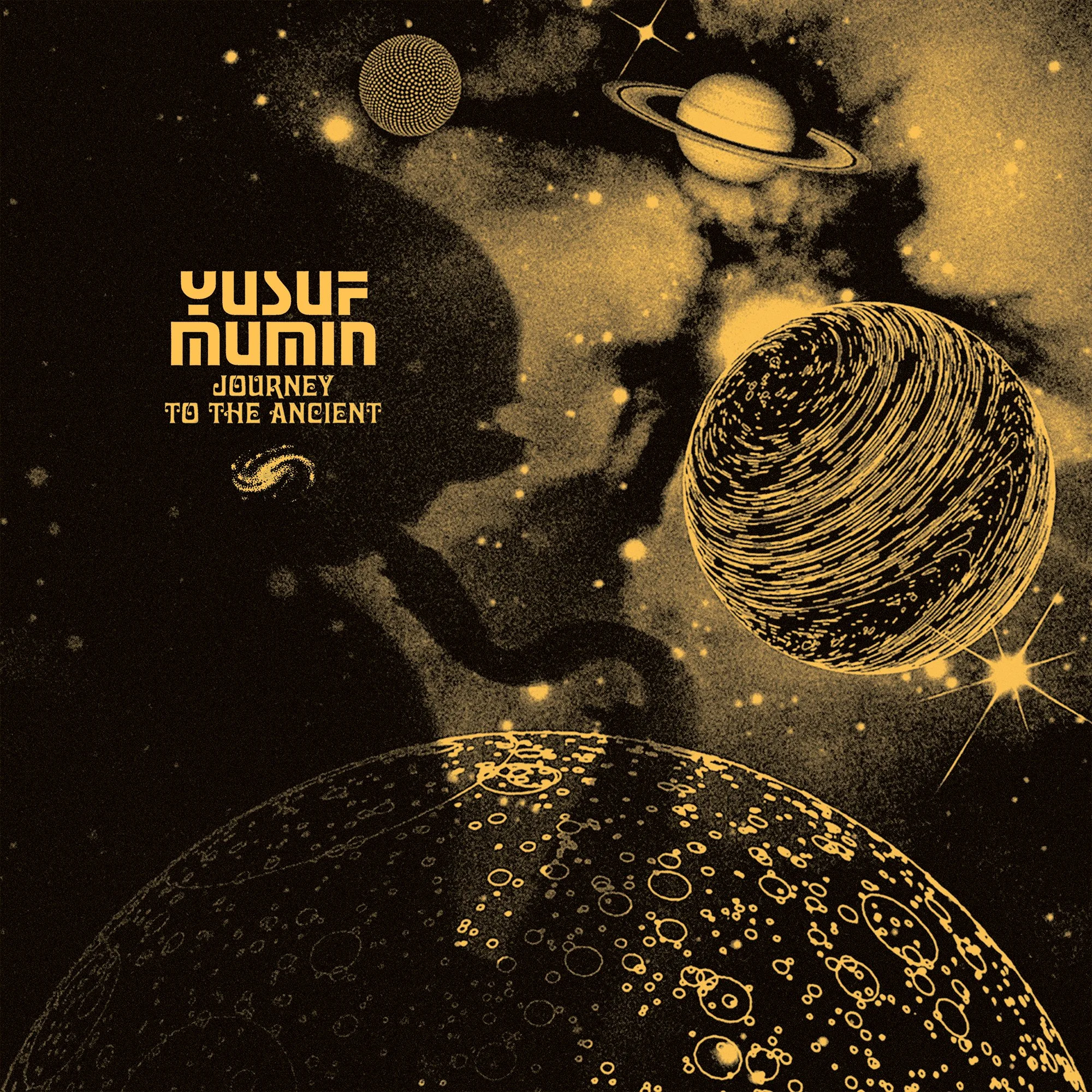Words by Justin Turford
As though made in a candle lit cave in some distant mountain range, this fabulous and never before heard Afro-spiritual jazz record was nevertheless created in Cleveland, Ohio. From Yusuf Mumin’s own private collection of unreleased recordings, this is an exceptional representation of Mumin’s own searching musical journey and of Cleveland’s celebrated boiling pot of African American politico-religious, cultural and creative impulses that ran through the increasingly fraught 1960s and into the next decade.
Exact dates for when these musical statements were made are lost in Yusuf’s memory bank but we can assume that they are post-Coltrane, post-Black Unity Trio and infused with the Pan-Africanism movement’s radical awakening that swept through African American communities during the 60s, the recordings probably sit in the first half of the 1970s (although I could be completely wrong).
Still sharp and living in Florida these days, Yusuf sent Wewantsounds’ Matt Robin an unrequested CD-R, containing these mysterious pieces of esoteric wonder. Undated but certainly from two different sessions, Yusuf plays every instrument on the tracks (alto, tenor, flute, cello and vocals) except for the perfectly judged percussion and drums of William Holmes, leaping from free jazz wildness to muted tablas as the composition demanded. A Dan Nuby is also mentioned as the bass player but in reality, Dan is Yusuf and Yusuf is Dan.
Yusuf Mumin
Influenced in part by the great Yusef Lateef’s international explorations and later by fellow Clevelander Albert Ayler, Sun Ra etc, the scene in the far northern city situated on the southern shore of Lake Erie, had already laid out possibilities for Yusuf, the radical experimentation of lesser known local freewheelers educating him before he had even heard the big dogs in action. Earlier recordings had taken place with different personnel, but it was the instant spark between Yusuf on alto saxophone, cellist Abdul Wadud and drummer Hasan Shahid that led to the Black Unity Trio. An initial jam session at the appropriately named ‘Cosmic Music’, Yusuf’s avant-garde record store / musician hangout, became six months of serious playing, resulting in the recording of the landmark free jazz album, ‘El-Fatihah’, a private press explosion of spiritual Black expression that reflected the scorched city blocks of the 1968 riots and the band members' newly Islamic, Eastern looking perspective. The trio’s dynamic spirit of self-determination and discipline created one of the best albums in the ‘free’ sphere, its minimal vinyl run only amplifying its mythical power over the subsequent decades.
For a multitude of reasons, ‘El-Fatihah’ became their only album to be released and the trio sadly disbanded in 1970, Yusuf’s restless nature taking him around the country for the next few years, contributing to more records that never happened. At some point, the tracks that became ‘Journey To The Ancient’ were recorded and have gathered dust since.
‘Bakumbadei’ opens this journey as an invocation of cello and voice. Brief (under a minute long), calming and as beautiful as a flash of sunlight, the cello’s drone sets the stage for the title number.
The cello is hardly a dominant instrument in the jazz world but it has always had a small place in the so-called ‘spiritual jazz’ canon. Its wide-sweeping, droning timbre can be lost when a piano is present but left exposed like on ‘Journey To The Ancient’, it takes on a substantial character, especially when paired with an extra layer of double bass. William Holmes’ skeletal drum set up of ride cymbals and quietly popping toms lays down a minimalistic but consistent rhythm as Yusuf (somehow) creates a dialogue of subtle, serene intensity between the cello, bass and tenor saxophone. What is quite amazing is that the composition sounds as if a group of musicians are responding to each other as the piece unfolds yet we know that Yusuf played everything apart from the drums on this. It’s a great piece of music, esoteric, mysterious, heavy.
Flute and some remarkable harmonic interplay between tablas and double bass carry the quiet storm of ‘A Distant Land’. The feeling of distance is palpable, not just because of the composition’s South Asian inspirations but living within its sedate pacing and a veiled, enigmatic performance, an experience akin to listening to a private conversation from another room.
This record of lost treasures closes with the eighteen minute epic ‘Diaspora Impressiomism’. More in line with the fearsome energy of Black Unity Trio, Yusuf and Holmes roar across time, trading explosive bursts of alto sax and drum kit urgency, the upright bass probing in front of and behind the central pulse. As I suggested earlier, this could have been recorded in a cave such is the raw, uncomplicated production - a couple of microphones only perhaps to capture this never-to-be-performed-again piece. It’s not all fire and audience-testing jazz noise, however. Interludes and breakdowns appear throughout the song, moments where we can closely listen to Yusuf’s bass fingering or William Holmes’ superb rhythmic expressionism but let’s not pretend that this isn’t arcane, impenetrable stuff for most listeners.
An intoxicating listen, it is always an honour to explore ‘lost’ music and ‘Journey to the Ancient’ is a potent and unusually emotive record that only amplifies the question of what else are we missing from a lifetime of cutting-edge creativity from Yusuf Mumin? 9/10.
Released on October 31st 2025.
PRE-ORDER HERE! https://wewantsounds.bandcamp.com/album/journey-to-the-ancient


